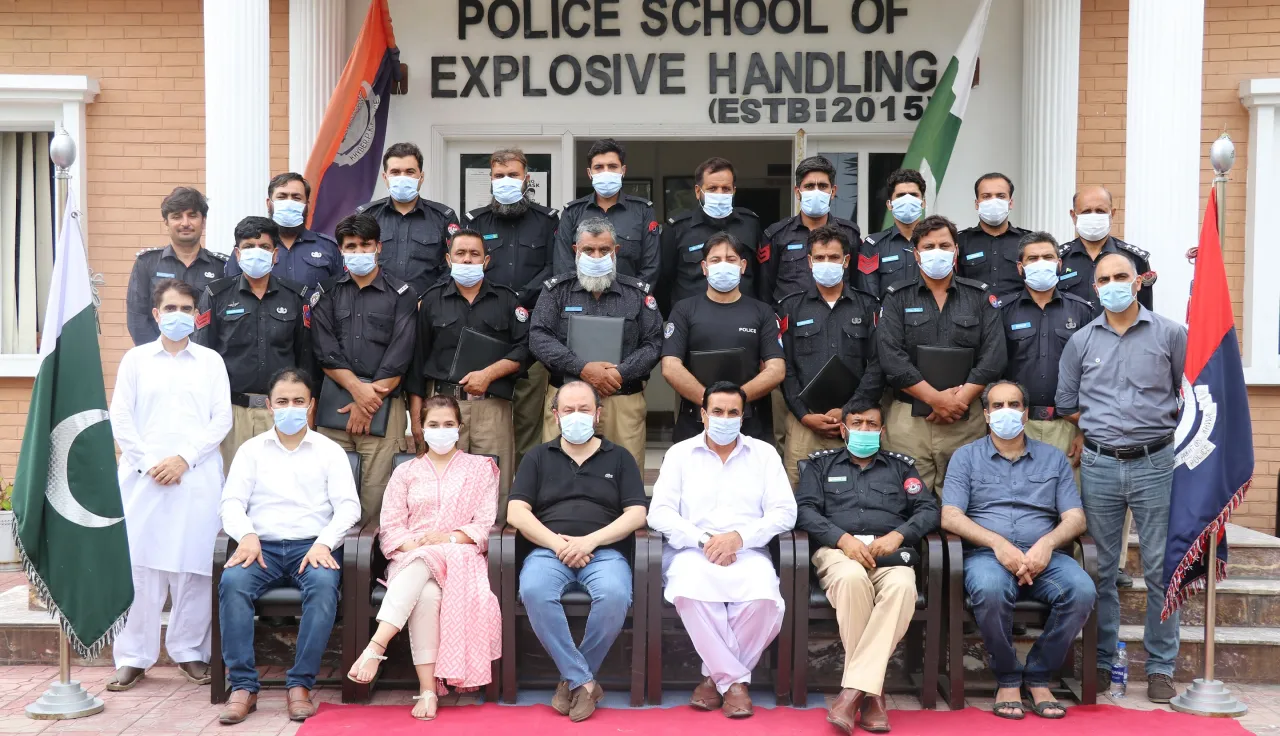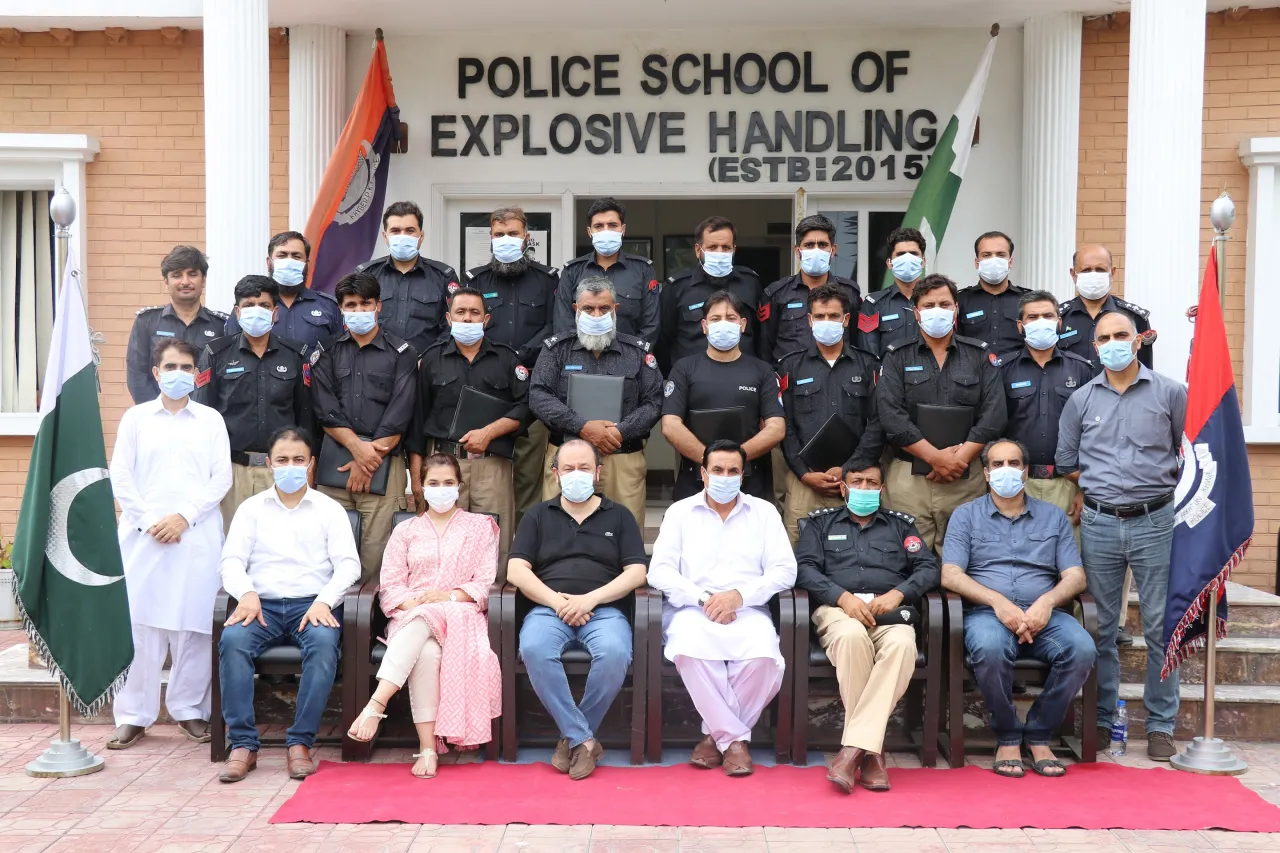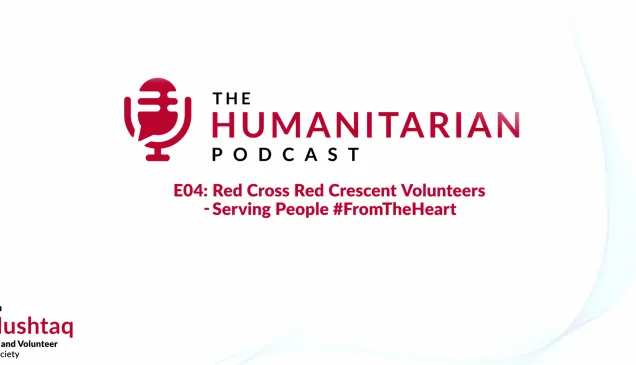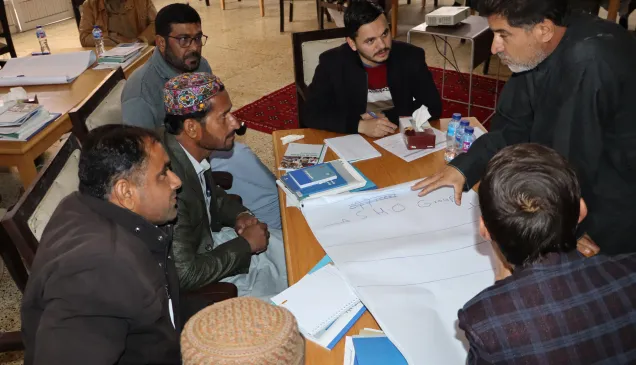Pakistan: Training the police in safer handling of explosives

Police inspector Shafiq Ahmed is a hero of sorts in Khyber Pakhtunkhwa (KP, formerly North-West Frontier Province). Dedicating nearly 30 years of his life to handling explosives and training bomb disposal operators, he has saved many lives in the process.
A trainer at the Police School of Explosive Handlings in Nowshera, inspector Shafiq and his team have trained more than 5,000 police officers. The only institute of its kind in Pakistan, the school serves as a centre of excellence for bomb disposal units from across the country. "I always tell young officers that it's important to be brave but it's more important to be cautious," he says with a smile.
Inspector Shafiq shares that the KP police has made many sacrifices in recent years to ensure the safety of citizens. "This school was set up to train our officers in the safe handling of explosives. I also helped to develop the curriculum for the training programme and I am proud that the school has grown to become a national-level centre of learning. We have trained more than 5,000 police officers," he says.
In July, the International Committee of the Red Cross (ICRC), in partnership with the Police School of Explosive Handlings, Nowshera, conducted a four-day training session on explosive ordnance reconnaissance (EOR) for officers from bomb disposal units of KP province.
Sixteen participants from eight districts of KP attended the programme. The training sessions are part of an agreement signed between the ICRC and KP police in 2016 that leverages support in explosive ordnance disposal, emphasizing the safety of police personnel, among other things. More than 180 police officers in KP have been trained in EOR, basic first aid and blast trauma management since the signing of the agreement.

Reconnaissance involves the investigation, detection, initial identification and reporting of suspected explosive ordnance to determine further action. Practical training for such potentially life-threatening situations is crucial to ensure everyone's safety, especially of police officers who act as first responders.
"The ICRC training sessions are technically rich, offering us an international perspective on the topics. From curriculum development to implementation, the ICRC has played a central role in the school's progress and the participants always leave with a sense of fulfilment," inspector Shafiq says.
Inspector Akhtar Naseer, also an instructor at the school, says, "Before 2015, the rate of casualties among police officers due to attacks using improvised explosive devices was very high. A lot of these losses could have been avoided if we had the right knowledge to handle the situation. Our casualty rate has decreased substantially now and I am proud to say that at least one officer in every police station in KP has basic knowledge of EOR."
Inspector Shafiq highlights that these sessions are crucial to ensuring the safety of both police officers and civilians. "This is particularly important to us because our teams are also vulnerable to accidental detonations and these lessons mitigate that risk to a large extent. If we don't ensure our safety first, how can we ensure it for the people," he says.



